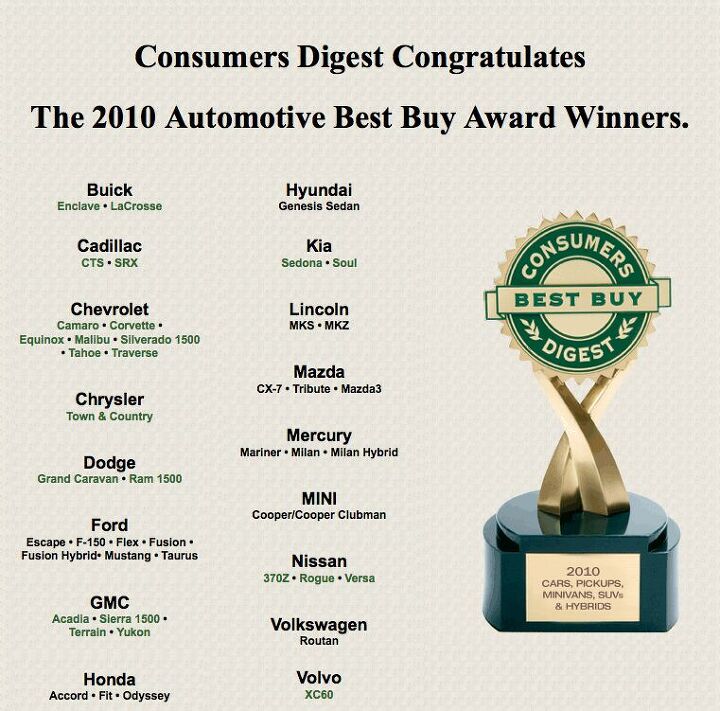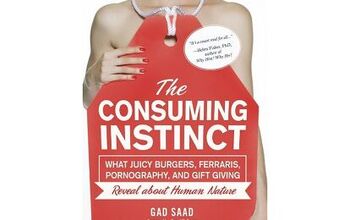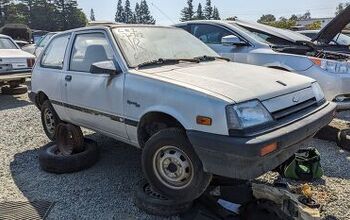The Truth About Consumers Digest
With strong new auto safety legislation being debated in congress,the role and scope of government regulation in the auto industry is becoming a hotly-contested issue. But one important consideration is being left out of the discussion: the role of private “regulation” of the auto industry. Even as the new legislation was being drafted, we were treated to an object lesson in non-governmental regulation when the non-profit Consumer Reports issued a “do not buy” warning for the Lexus GX after it exhibited lift-off oversteer on a test course. Because CR performs independent testing on a wide variety of dealer-example vehicles, it was able to detect this error, which prompted Toyota to stop sales and production of the model until a fix was released. Throughout the incident, NHTSA played second fiddle to CR, merely checking the non-profit’s work. The lesson: a subscriber-based, non-profit is the real front line of US auto regulation. But, as the Wall Street Journal [sub] reports, Consumer Reports is being shadowed by another organization called Consumers Digest… and you don’t want to make the mistake of confusing the one with the other.
Consumer Reports is owned by the not-for-profit Consumers Union, and it jealously guards its credibility. CR buys all the vehicles it tests to ensure that they are not OEM-fettled for flattering performance, and refuses to allow its awards to appear in manufacturer advertising. As head of testing David Champion puts it to the WSJ,
We do not want to be beholden to the manufacturers in any way. We don’t want to be seen as selling our names to manufacturers
The same can not be said for its doppelganger, Consumers Digest. Like CR, CD puts out a regular report with “best buy” recommendations of certain vehicles. Like CR, the CD publication runs no advertising, but instead of relying on consumer subscriptions, CD has a very different source of revenue: licensing its awards for advertising purposes. As an example, the WSJ points out that GM received no fewer than 15 CD “Best Buy” awards, and GM has paid the magazine to use those ads in its marketing and advertising efforts. Though GM refused to reveal how much it paid CD to license its 2010 awards, but CD says the traditional fee is $35k for the first award and $25k for each award thereafter.
Of course, CD swears that this troubling business model in no way affects the decision to award “Best Buy” kudos to a given manufacturer. Editor Rich Dzierwa tells the WSJ that there is
no pressure on the editorial staff to consider products, to consider vehicles because either they have been licensees or because there is a possibility that they will be. Licensing comes after our review process
Of course there’s evidence that this isn’t the whole story, namely that CD’s award page lists all winners of its “Best Buy” award but only offers links with further information for models that have paid CD licensing fees.
Not that GM is sweating the appearance of being the major benefactor of an award mill. GM executive director of marketing Paul Edwards tells the WSJ:
We had done some research in terms of what resonates [with consumers] and what doesn’t, and Consumers Digest scores near the top
Now, why would that be? Would it be because Consumers Digest is widely available and read by millions? Not likely, considering the WSJ’s revelation that CD
has no subscribers, runs no ads and is only available in certain bookstores and retail shops
Could this under-earned “resonance with consumers” have something to do with the fact that the name “Consumers Digest” sounds incredibly similar to the name “Consumer Reports,” possibly the best-known source of reliability and quality data in the country? There sure isn’t an overabundance of alternate explanations.
Granted, Consumers Digest isn’t the only company out there peddling awards and surveys to automaker marketing departments. According to an unnamed automaker,
J.D. Power charges as much as $300,000 for copies of a survey, and the same amount to use the awards in ads
And there are plenty of other examples of firms that generate marketing materials for a fee, while insisting that the fees in no way affect the outcome of their surveys and awards. What makes the Consumers Digest example so especially galling though, is the similarity between its name and Consumer Reports. Given that CR is the closest thing to a private auto regulator in this country (and the only “regulator” that regularly tests random vehicles), this would be akin to founding a fuel efficiency-rating organization named The Environmental Protection Association, and accepting fees from automakers to feature the “EPA ratings” it generates in advertisements.
Luckily, private regulation doesn’t come down to a single agency, but rather relies on whole networks of private actors to inform consumers and citizens. By informing the public of the differences between CR and CD, the WSJ (and now, TTAC) are themselves regulating the regulators, separating the wheat (CR) from the chaff (CD). Ultimately though, the best reliability data comes from consumers themselves as well as their non-profit watchdogs. TTAC contributor Michael Karesh may not have a dedicated test track or the budget to regularly buy vehicles for testing purposes, but his TrueDelta site solicits data from the actual owners of vehicles, providing an instant, unfiltered and broad sense of a model’s reliability profile. Databases like TrueDelta, as well as well-funded, non-profit regulators like CR are crucial to maintaining a well-informed car-buying public, which in turn is crucial to healthy market function. By exposing the less-scrupulous operators in the field of automotive awareness, we hope TTAC is contributing to this end as well, in its own distinct way.
More by Edward Niedermeyer
Latest Car Reviews
Read moreLatest Product Reviews
Read moreRecent Comments
- Lorenzo I just noticed the 1954 Ford Customline V8 has the same exterior dimensions, but better legroom, shoulder room, hip room, a V8 engine, and a trunk lid. It sold, with Fordomatic, for $21,500, inflation adjusted.
- Lorenzo They won't be sold just in Beverly Hills - there's a Nieman-Marcus in nearly every big city. When they're finally junked, the transfer case will be first to be salvaged, since it'll be unused.
- Ltcmgm78 Just what we need to do: add more EVs that require a charging station! We own a Volt. We charge at home. We bought the Volt off-lease. We're retired and can do all our daily errands without burning any gasoline. For us this works, but we no longer have a work commute.
- Michael S6 Given the choice between the Hornet R/T and the Alfa, I'd pick an Uber.
- Michael S6 Nissan seems to be doing well at the low end of the market with their small cars and cuv. Competitiveness evaporates as you move up to larger size cars and suvs.


































Comments
Join the conversation
The dealer told me I had better give my new car a good rating on the maker's survey.
C'mon, folks. Volkswagon Routan a "Best Buy"?!? Credibility Fail.